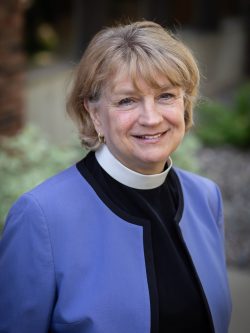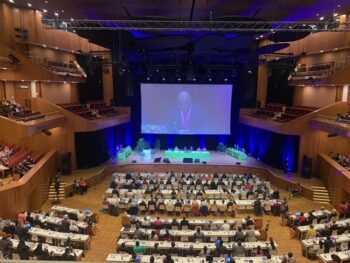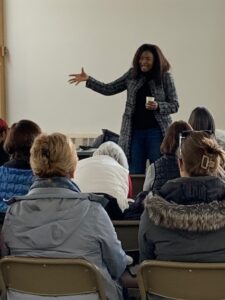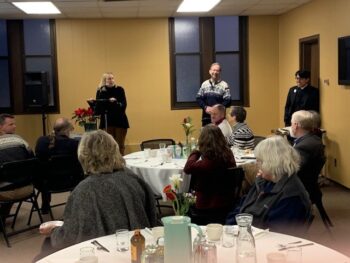The care and feeding of a bishop
November 6th, 2023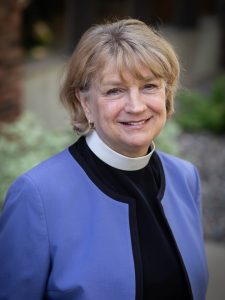 By Bishop Ann Svennungsen
By Bishop Ann Svennungsen
In fewer than six months, the Minneapolis Area Synod will elect a new bishop. (Simply writing those words evokes so many deep feelings: gratitude, grief, uncertainty, wonder.) Our synod constitution limits a bishop’s ministry to two six-year terms. Having begun this call in 2012, I will complete my two terms July 31, 2024. The new bishop will be elected sometime during May 2-4 at the 2024 Minneapolis Area Synod Assembly.
I invite you to join me in prayer as we enter these months. I love my calling as your bishop and am profoundly grateful for the privilege of serving in this way. I also feel joy that another person will soon have the chance to experience the wonder of serving as your bishop.
Even more, I deeply believe the ministries of synod bishop and staff are vitally important to the church’s flourishing. Our constitution describes the bishop’s work in nearly four pages with a list of some 40 primary and secondary tasks (not to mention the “other tasks as assigned”). This is good work, important work. So, I truly hope we will join hands in prayer in the months ahead that the Spirit will guide and bless the entire process.
WE CAN BEGIN BY thanking God for the Spirit’s work already in the tremendous efforts of our gifted Bishop Election Committee. Several opportunities are already available for all members of our synod’s congregations. Listening sessions for all lay and rostered congregational members are scheduled for November 15 and 16.
Our Ministerium for rostered leaders will be held Thursday morning, January 25, 2024. In addition to worship, I will share a reflection, “The role of bishop as I’ve experienced it the past 12 years.” Then, there will be ample time for conversation.
“I love my calling as your bishop and am profoundly grateful for the privilege of serving in this way.”
On Saturday, February 10, Conference Assemblies will be held. Each congregation belongs to one of our 12 different geographical conferences. At the February 10 assemblies, each conference will have opportunity to nominate up to three candidates for bishop (potentially a total of 36 nominees). Further, our Synod Assembly, May 2-4, begins with an ecclesiastical ballot – where any voting member can also nominate a candidate for bishop. 
AND, SPEAKING OF ELECTIONS, I encourage you to be prayerful about the election in many of our region’s political jurisdictions on November 7. (Check the Minnesota Secretary of State’s website to see if there is an election in your community.) Two phrases from the ELCA Social Message on governance come to mind:
- This church strongly affirms voting, guided by faith-based values, as an exercise in citizenship.
- Although we may disagree about the best ways to achieve the public good, we do not disagree about our shared responsibility to seek it.

